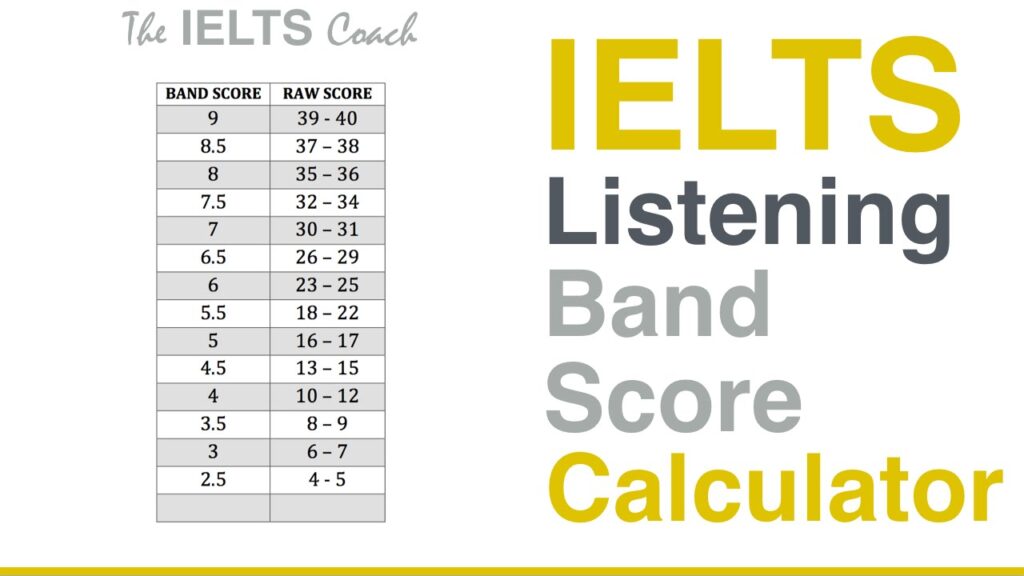Ielts Listening Grading, The IELTS Listening grading system plays a crucial role in determining your overall IELTS band score. Whether you’re aiming to study, work, or immigrate to an English-speaking country, a good understanding of how the listening section is graded can help you better prepare for the test and achieve your desired score.
What is the IELTS Listening Test?
The IELTS Listening test is one of the four components of the International English Language Testing System (IELTS), alongside Reading, Writing, and Speaking. It consists of four sections with a total of 40 questions, and the audio recordings feature a range of native English accents. You’ll listen to conversations, monologues, and academic discussions, then answer questions based on what you heard.
How is IELTS Listening Graded?
The IELTS Listening grading is based on the number of correct answers you provide out of 40. Each correct answer is worth one point, and there is no penalty for incorrect answers. Your raw score is then converted into a band score ranging from 1 (non-user) to 9 (expert user).
Here is a rough guide to how raw scores translate into band scores:
| Correct Answers | Band Score |
|---|---|
| 39–40 | 9 |
| 37–38 | 8.5 |
| 35–36 | 8 |
| 32–34 | 7.5 |
| 30–31 | 7 |
| 26–29 | 6.5 |
| 23–25 | 6 |
| 18–22 | 5.5 |
| 16–17 | 5 |
| 13–15 | 4.5 |
Note: These values may slightly vary between test versions, but the grading system is generally consistent.
Factors That Affect Your Listening Score
Although the test is objectively scored, several factors can influence your performance:
- Spelling and Grammar: Answers must be spelled correctly and fit grammatically in the sentence.
- Following Instructions: If a question asks for “no more than two words,” writing three will result in a wrong answer.
- Attention to Detail: Even minor errors in dates, numbers, or names can lead to lost marks.
- Concentration: The audio is played only once, so focus is key.
Tips to Improve Your IELTS Listening Score
- Practice with Real Tests: Use official IELTS practice materials to familiarize yourself with the test format.
- Develop Note-Taking Skills: Jot down keywords as you listen to help recall information.
- Enhance Listening Skills: Listen to English podcasts, news, and documentaries to get used to different accents and speech rates.
- Review Common Question Types: These include multiple choice, form completion, sentence completion, and labeling diagrams.
Final Thoughts
Understanding the IELTS Listening grading system can help you set realistic goals and track your progress more effectively. By knowing how your performance is measured and focusing on strategic preparation, you can boost your confidence and your chances of achieving a high band score.
For the best results, combine consistent practice with a good study plan—and consider professional coaching if you’re aiming for a high score.
You Might Also Like These:
buy ielts certificate without exams

